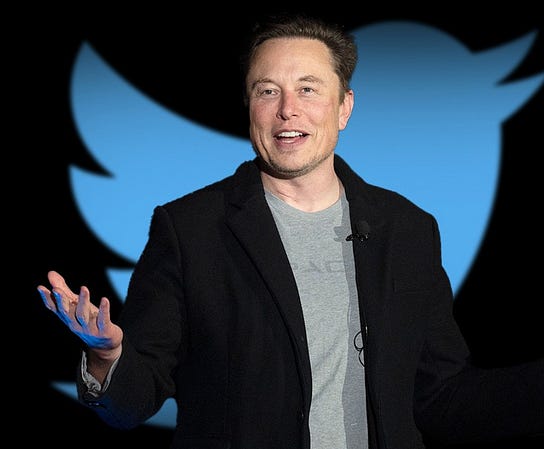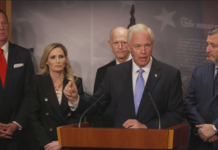When Elon Musk spent $44 billion to purchase Twitter, many conservatives hoped for a reinvigorated digital public square committed to free speech and free expression. But few expected Musk to engage in a public tell-all—not just naming names, but also revealing exactly how and why Twitter interfered in the 2020 presidential election.
Now that details are coming to light about how the federal government, left-wing activists, and Twitter colluded to swing an election to The Regime’s favored candidate, it’s clear we need a more in-depth investigation that scrutinizes all of the relevant players—including high-level Democrats, Deep State operatives, and other Big Tech giants like Facebook and Google.
House Republicans should dream big here. Presumptive incoming House Speaker Kevin McCarthy (R-CA) should announce a special, January 6-style select committee to investigate Big Tech’s egregious election meddling.
Earlier this month, journalist Matt Taibbi shared various documents regarding Twitter’s decision to censor the New York Post‘s Hunter Biden laptop exposé in October 2020. What Taibbi found was shocking. As some of us have previously suggested, it is now absolutely undeniable that Twitter abused its power, without any legitimate justification, to censor a legitimate investigative journalism report and prevent voters from learning about Hunter Biden’s various corrupt dealings overseas. The post hoc attempts to justify Twitter’s decision by appealing to a nebulous “hacked materials policy” were based on entirely false pretenses. Fact is, Hunter’s laptop wasn’t hacked—and the decision to censor the Post‘s story was made capriciously.
Notably, the left-leaning authoritarians at Twitter didn’t seem to doubt the story’s veracity at the time. Instead, they were worried about the effect the story might have on voters. As Yoel Roth, Twitter’s then-global head of trust & safety, said in an internal Twitter discussion: “Given the SEVERE risks here and lessons of 2016, we’re erring on the side of including a warning and preventing this content from being amplified.”
What were the “lessons of 2016?” Well, many progressives blamed the media coverage of Hillary Clinton‘s emails—and social media amplification of that coverage—for her loss to Donald Trump. This time around, Twitter was prepared to go on offense. What better way for Big Tech to prevent another unflattering “October Surprise” for the Democrats than by blocking circulation of the story outright?
Musk’s transparency in the face of the Left’s ceaseless shrieking has been laudable. But the world’s richest man can only tell part of the story and, more to the point, it shouldn’t be Elon Musk’s sole responsibility to save democracy. Congress has a role to play, as well.
Republicans in the House should think bigger than simply calling former Twitter executives before the House Oversight Committee. We need a special select committee tasked with an exclusive focus on this issue. Let’s subpoena Google. Let’s call in Zuckerberg. Let’s FOIA outgoing Speaker Nancy Pelosi‘s (D-CA) text messages. The American people deserve to know exactly what happened in 2020—specifically, to what extent Big Tech’s election meddling was encouraged, or perhaps even coerced, by elected officials and other state actors. The situation is certainly dire enough to warrant a select committee of this nature.
Modern Big Tech companies have a level of control over the flow of information that is unparalleled in all of human history. As we learned from journalist Bari Weiss in her reporting on the “Twitter Files” on Thursday, Twitter’s censorship was frequent and targeted toward dozens of conservative accounts, such as “Libs of TikTok” and TPUSA Founder Charlie Kirk. The idea that an unaccountable Silicon Valley content moderator can flip a switch and potentially shift tens of thousands of votes should worry anyone who even purports to care about democracy. And what happened at Twitter almost certainly occurred at the other tech giants, as well.
It certainly happened at Facebook, which made the same decision to censor the Hunter Biden story within an hour of Twitter’s own decision to do so. Curious, that. And though it’s more difficult to notice manipulated search algorithms than blatant censorship, it’s hard to believe Google just sat on its hands during all this.
According to recent polls, the public has serious doubts about the fairness of the 2020 presidential election. One poll taken right before last month’s midterm elections found that only 36% of voters outright rejected the idea that the 2020 election was rigged or stolen—and of that 36%, about a third said they could understand why their fellow citizens were skeptical.
This should surprise no one. The collusion was out in the open. Some of the most powerful corporations in the world, with a quasi-monopoly on online communication, used their massive influence to suppress true, pertinent election information. Time was even so brazen to write a glowing profile about the “shadow campaign” that “saved the election.”
The 2020 election was decided by 43,000 votes. If a mere 21,500 people had changed their minds, Trump would have won—even apart from all the election shenanigans. That’s an extremely small number—21,500 people is subpar attendance at a meaningless Minnesota Twins game in September. Big Tech’s influence is certainly more far-reaching than that.
So let’s get to the bottom of what happened. A select committee would certainly be controversial—perhaps even mildly vengeful, or even a bit petty. But behind closed doors, even Democratic politicians are concerned about tech censorship. Perhaps the only silver lining in the “Twitter Files” is that even Rep. Ro Khanna (D-CA), a committed progressive activist, found Twitter’s conduct to be alarming and objectionable.
The American people deserve to know the truth. What did Big Tech do? Who told them to do it? What was the motive behind doing it? And what are the legal and policy ramifications of these powerful corporations having a stranglehold over election information?
Let’s find out.
















